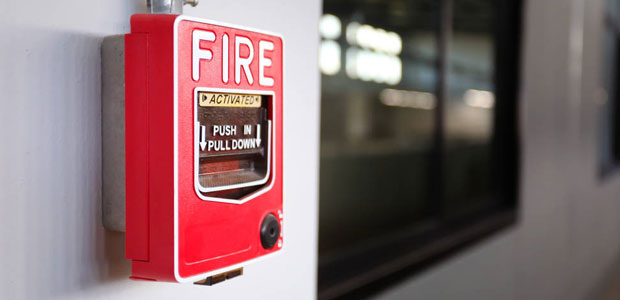In a time when safety and security are very important, it is very important to know how important safety systems work. The fire alarm is one of these systems. It is an important part of both home and business safety. “How Does a Fire Alarm System Work?” is a question that reveals the complicated ways that these life-saving gadgets do their jobs. Fire alarm systems are carefully made to find and react to the first signs of a fire, sending important signals to people inside and to emergency services. This article will go into detail about the basic ideas and parts that make up fire alarm systems. By learning about how these devices work, people and groups can better understand how they protect lives and property, making the world a safer and more secure place for everyone.
What is the Role of a Fire Alarm System?
A fire alarm system’s main job is to keep people safe and get help quickly if there is a fire. For example, smoke, heat, or fires are all early warning signs that these systems are meant to pick up on. Once a possible fire is found, the system sets off sounds that can include sirens, strobe lights, and voice messages to let people inside the building know what’s going on. This timely alert gives people the seconds and minutes they need to safely leave the area. Also, a lot of modern fire alarm systems are connected to monitoring services that let rescue workers know about the fire so they can respond quickly and effectively. In the end, a fire alarm system’s job is to save lives, protect property, and lessen the damage that fires could do by finding them early and sending out important alerts.
How Does a Fire Alarm System Work?
Some types of sensors, like smoke detectors and heat sensors, are used in fire warning systems to find fires or smoke. When a possible fire is found, the system sets off alarms with sounds and flashing lights to let people inside know what’s going on. These days, systems can also talk to tracking services, which can then call the police or fire department. The quick discovery and notification process is very important for giving early warnings and letting people leave in time, which reduces the damage and risks that come with fires.
Components of a Fire Alarm System
A fire warning system is made up of several important parts that work together to find and alert people to fires. Some of these parts are:
Control Panel: The control panel is where everything in the system is managed. It takes data from different detectors and sets off sirens when a fire is found.
Initiating Devices: Sensors that look for signs of fire, like smoke alarms, heat detectors, and flame detectors, are called initiating devices. When they think there might be a fire, they sound the warning.
Notification Devices: These are things that sound an alarm when they sense a fire. They can be sirens, horns, strobe lights, or even voice escape systems.
Manual Pull Stations: These are gadgets that let people manually set off the alarm in case of an emergency.
Communication Devices: Some systems have communication devices that can be used to let rescue services or remote monitoring stations know when a fire is found.
Backup Power Source: Most fire alarm systems have backup power sources, like batteries or generators, to make sure they keep working if the power goes out.
Duct Detectors: These are special devices that keep an eye on air ducts for fire and smoke in HVAC systems.
Annunciator Panel: This optional part gives building staff a visual representation of the system’s state and alerts.
A fire alarm system only works if all of its parts work together smoothly to find fires, sound alarms, and make it safe for people to leave the building.
Fire Alarm System Maintenance
Fire alarm system maintenance is very important to make sure that the system will work in a fire situation. To keep the system in good shape, it needs to be inspected and maintained on a regular basis by trained technicians. Important parts of repair are:
Testing: Make sure that all of the system’s parts, like monitors, alarms, and control panels, are working properly by testing it on a regular basis.
Cleaning: Keep alarms and monitors clean and free of dust and other things that could get in the way of their working.
Battery Checks: Make sure the backup batteries work because they are very important when the power goes out.
Software Updates: To fix security holes and make the system run faster, keep the system software up to date.
Documentation: Keep track of the testing and upkeep you do, as this may be needed to follow the rules.
Proper maintenance enhances the system’s readiness to provide early detection and rapid response, ultimately safeguarding lives and property in the event of a fire.
Benefits of fire alarm system
Fire alarms are an important part of keeping homes and companies safe. One of their benefits is early discovery, with the main goal of saving lives and keeping property safe from damage. By quickly alerting people to the presence of a fire, these systems help people leave the building quickly, lowering the risk of injuries or deaths. Additionally, they are very important for preventing property loss because they allow emergency services to respond more quickly. Buildings must follow safety rules, and fire alarm systems are an important part of doing that. Overall, these systems give people peace of mind by letting them know that there is a watchful guardian watching over their lives and property in case of a fire emergency.
Bottom Line
When it comes to home security, fire alarms are very important because they can tell the difference between safe and dangerous areas in your home. You can look out for possible fire hazards and be better ready for them if you know how your system works.

